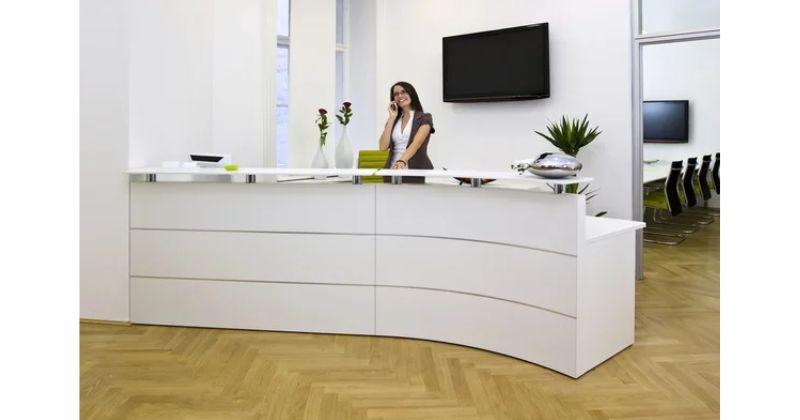In today’s fast-paced digital world, your website is often the first point of contact between you and potential customers. It’s like the front door to your business—a place where people decide if they want to step inside and learn more or move on to someone else. Because of this, one of the most crucial tools in your marketing toolbox is your website. But how do you make sure it truly represents your brand and serves its purpose effectively? Selecting the best web design firm is the first step in the entire process. Here are the top 10 qualities I believe you should look for when selecting a company to create or redesign your website.
1. Know What You Need: The First Step to Success
Before you even begin the search for a web design company, it’s crucial to have a clear understanding of what you need from your website. Ask yourself, what is the main goal of your site? Is it to drive sales, provide information, generate leads, or perhaps showcase a portfolio? By identifying the primary purpose, you can narrow down your options to companies that specialize in your area of need. For instance, if you’re looking to build an e-commerce site, a company with a strong track record in online stores would be ideal.
Beyond the primary function, consider the features you need. Do you require a blog, contact forms, a secure payment gateway, or social media integration? Each feature adds a layer of complexity to the project, so it’s essential that the design company is well-versed in incorporating these elements seamlessly. A good website design company will listen to your needs and suggest the best solutions, rather than pushing a one-size-fits-all template.
Moreover, understanding your target audience is just as important. The design and functionality should resonate with the people you want to reach. A site aimed at millennials might require a sleek, modern design with integrated social sharing options, while a website for a law firm might need a more conservative, professional appearance. By defining these needs upfront, you set the stage for a successful partnership with a web design company that can deliver exactly what you envision.
2. Experience and Expertise: The Proof Is in the Portfolio
Experience is a key indicator of a company’s ability to deliver on its promises. A web design company that has been in the industry for several years is likely to have faced and overcome a variety of challenges, making them well-equipped to handle your project. Their longevity in the field suggests stability and reliability—traits that are crucial when entrusting someone with your business’s online presence.
When evaluating a company’s experience, don’t just take their word for it—dig into their portfolio. This is where you’ll see the real evidence of their capabilities. You might feel more confident in their adaptability if they have a diverse portfolio with a range of projects from different industries. Look at the aesthetics of the designs, but also consider the functionality. Is the user experience intuitive? Do the websites function well on desktop and mobile devices, or are they not responsive? These are critical factors that impact how visitors interact with your site.
But it’s not just about the past. You should also inquire about the company’s approach to keeping up with current trends and technologies. Since the digital world is always changing, a competent web design firm stays on top of things. Whether it’s adopting the latest in responsive design, integrating new content management systems, or leveraging emerging technologies like AI and AR, the company’s ability to innovate can significantly affect the success of your website.
3. Industry Knowledge: It’s All About Knowing Your Audience
While general experience is valuable, having specific knowledge of your industry can be a game-changer. A web design company that understands the nuances of your industry will be better equipped to create a website that speaks directly to your target audience. They’ll be familiar with industry jargon, understand the competitive landscape, and know what elements are essential for your type of business.
For example, if you’re in the healthcare industry, a web design company with experience in this sector will know the importance of compliance with regulations like HIPAA. They’ll understand the need for a clean, professional design that instills trust and confidence. Similarly, if you’re in the e-commerce space, a company that has worked with online retailers will understand the intricacies of creating a seamless shopping experience, from product display to checkout.
Additionally, a company with industry knowledge can offer valuable insights during the planning stages. They might suggest features or design elements you hadn’t considered, based on what’s working well for others in your field. This kind of expertise can turn a good website into a great one—one that not only looks good but also drives business results.
4. Customization and Flexibility: No One-Size-Fits-All Solutions Here
When it comes to web design, there is unquestionably no one-size-fits-all answer. Every business has its own unique brand, goals, and target audience, so it’s essential that your website reflects that individuality. This is where customization comes in. A top-tier website design company will take the time to understand your brand’s identity and tailor the design to fit your specific needs, rather than forcing your content into a pre-made template.
Customization doesn’t just apply to the aesthetics of your website. It’s also about functionality. Maybe you need a custom feature that’s not available in standard website templates, like a unique booking system or a members-only section. A good design company should be able to build these features from the ground up, ensuring that your website works exactly the way you need it to.
Flexibility is another critical aspect of a successful web design partnership. The design process is often iterative, meaning that ideas and requirements may evolve as the project progresses. A company that is rigid and unwilling to accommodate changes can become a roadblock. On the other hand, a company that is flexible and open to revisions allows the project to evolve naturally, leading to a final product that truly meets your needs. Whether it’s making adjustments based on feedback or integrating new ideas that arise during development, flexibility ensures that you’re completely satisfied with the end result.
5. Creative and Technical Skills: The Magic Mix of Art and Science
Creating a website is a blend of art and science. It’s not just about making something that looks pretty; it’s about creating a site that functions flawlessly and delivers a great user experience. This calls for a blend of technical and artistic abilities, which are two aspects of web design. Make sure a web design business is strong in these areas before picking them.
On the creative side, I look for a company that can bring fresh ideas to the table. The design should not only align with my brand but also stand out from the competition. A strong design team will know how to use color, typography, imagery, and layout to create a visually engaging website that captures visitors’ attention and keeps them browsing. They should also have a solid understanding of user experience (UX) principles, ensuring that the site is intuitive and easy to navigate.
But if a website isn’t functional, all that beauty won’t matter. This is where technical skills come in. The company should be proficient in the latest web technologies and coding languages, ensuring the site is fast, responsive, and compatible across all devices and browsers. They should also be adept at troubleshooting technical issues and ensuring that the backend of the site is as polished as the front end.
Furthermore, I value a company that can balance these creative and technical elements seamlessly. A well-designed website is one where these two aspects complement each other, resulting in a site that not only looks great but also functions at the highest level. This balance is what elevates a website from merely good to truly exceptional.
6. Communication Skills: Keeping the Lines Open
Any project that is successful must have effective communication, and web design is no different. From the initial consultation to the final handover, clear and consistent communication ensures that everyone is on the same page and that the project progresses smoothly. When I’m evaluating a web design company, I pay close attention to how they communicate right from the start.
A good web design company will take the time to listen to your ideas, understand your vision, and ask the right questions. They should be able to translate your needs into actionable plans, ensuring that the final product aligns with your goals. This involves not just listening but also providing feedback and suggestions based on their expertise. Open communication fosters collaboration and helps prevent misunderstandings that can derail a project. If you’re looking for the best website design company in Delhi, I highly recommend checking out Digital Top Guns. They have a stellar reputation for delivering high-quality, customized websites that perfectly align with your business goals.
Regular updates are another aspect of effective communication. I appreciate companies that keep me informed about the project’s progress through regular check-ins, whether via email, phone calls, or project management tools. This not only gives me peace of mind but also allows me to provide input at critical stages, ensuring that the project stays on track.
Lastly, responsiveness is a critical factor. Whether it’s answering questions, addressing concerns, or making revisions, a company’s responsiveness can significantly impact the overall experience. Quick, thoughtful responses indicate that they value your project and are committed to delivering a high-quality product. A successful collaboration requires trust, which is developed via effective communication.
7. Project Management Process: A Roadmap to Success
A well-organized project management procedure is necessary to complete a website project on schedule and within budget. Without a clear roadmap, projects can easily go off course, leading to missed deadlines and ballooning costs. That’s why I always ask potential web design companies about their project management process before committing.
The first step in a strong project management process is thorough planning. This involves setting clear goals, defining the scope of the project, and creating a detailed timeline. The company should work with you to identify key milestones and deliverables, ensuring that everyone knows what to expect at each stage of the project. This planning phase is crucial for preventing scope creep—a common issue where projects expand beyond their original scope, leading to delays and increased costs.
Transparency is another critical element of project management. A good web design company will be upfront about timelines and costs, providing a clear breakdown of how the project will unfold. This includes everything from the initial design concepts to development, testing, and final launch. Knowing what to expect at each stage helps avoid surprises and ensures that the project stays on track.
Finally, effective project management includes contingency planning. Even the best-laid plans can encounter unexpected challenges, whether it’s technical issues, delays in content delivery, or changes in project scope. A company that is prepared for these eventualities will have strategies in place to address them without derailing the project. This kind of proactive approach is what separates good project managers from great ones and ensures that the final product meets your expectations.
8. Post-Launch Support and Maintenance: Because the Work Doesn’t End at Launch
Although launching a website is a thrilling accomplishment, the journey doesn’t end there. Websites require ongoing maintenance to keep them running smoothly and securely. From software updates to bug fixes and content management, post-launch support is crucial to the long-term success of your website. That’s why I always consider what kind of post-launch support a web design company offers before making my decision.
One of the first things I look for is whether the company offers maintenance packages. These packages typically include regular updates, security monitoring, and performance optimization. Regular updates are essential for keeping the website secure and ensuring that it remains compatible with new browser versions and devices. Security monitoring helps protect against potential threats, such as hacking attempts or malware, which could compromise your site and your customers’ data.
Another important aspect of post-launch support is the availability of technical assistance. Even the most well-designed websites can encounter issues over time, whether it’s a broken link, a slow-loading page, or a plugin that stops working. Knowing that you have a reliable support team on hand to address these issues quickly can save you a lot of headaches and ensure that your site continues to perform at its best.
Finally, I consider how responsive the company is to requests for updates or changes after the site is live. Businesses evolve, and so do their websites. Whether you need to add new content, update existing pages, or introduce new features, having a company that is responsive and willing to make these changes ensures that your website stays relevant and effective as your business grows.
9. Client Reviews and Testimonials: Trust What Others Have to Say
One of the most reliable ways to gauge a web design company’s reputation is by reading client reviews and testimonials. These first-hand accounts from previous clients can provide valuable insights into the company’s strengths and weaknesses, helping you make an informed decision. I always take the time to research what others are saying before choosing a web design partner.
When reading reviews, I look for patterns in the feedback. Consistently positive reviews that highlight the same strengths—such as excellent communication, creativity, or technical expertise—can give you confidence that the company will deliver similar results for your project. On the other hand, if multiple reviews mention the same issues, such as missed deadlines or poor customer service, it’s a red flag that shouldn’t be ignored.
In addition to online reviews, I pay attention to testimonials provided on the company’s website. While these are typically curated to showcase the best feedback, they can still offer valuable insights. I look for detailed testimonials that go beyond generic praise to describe specific aspects of the project, such as how the company handled challenges or exceeded expectations. The more specific the testimonial, the more credible it tends to be.
Finally, I consider how the company responds to negative reviews or criticism. A professional and constructive response to a negative review shows that the company is committed to customer satisfaction and is willing to address issues openly. This kind of transparency and accountability is a good indicator of a company’s commitment to delivering quality service.
10. Cost vs. Value: You Get What You Pay For
Budget is always a consideration when hiring a web design company, but it’s important to look beyond the price tag and consider the overall value. The cheapest option might be tempting, but in many cases, you get what you pay for. Investing in a quality website is an investment in your business’s future, so it’s worth considering what you’re getting for your money.
When evaluating cost versus value, I start by looking at the company’s pricing structure. Some companies offer flat-rate pricing, while others may charge based on the scope of the project. Understanding what’s included in the price—such as design, development, testing, and post-launch support—helps me compare different options more effectively. I also consider whether the company offers any additional services, such as SEO or digital marketing, which can add significant value to the project.
It’s also important to consider the long-term value of the website. A well-designed website that meets your needs and provides a great user experience can pay for itself many times over through increased traffic, better conversion rates, and higher customer satisfaction. On the other hand, a cheaply made website that requires constant fixes or fails to engage visitors can end up costing more in the long run.
Lastly, I weigh the company’s expertise and experience against the cost. A more expensive company with a proven track record and industry-specific knowledge may be worth the investment, especially if they can deliver a website that not only meets but exceeds your expectations. In the end, the value you get from your website should far outweigh the initial cost, making it a worthwhile investment for your business.
Conclusion: Making the Right Choice for Your Business
Choosing the right website design company is a critical decision that can have a lasting impact on your business. Your website is often the first interaction customers have with your brand, so it’s essential that it makes a strong, positive impression. By focusing on these top 10 qualities—knowing what you need, valuing experience, industry knowledge, customization, creativity, communication, project management, post-launch support, client reviews, and cost versus value—you can make an informed decision that ensures your website not only meets but exceeds your expectations.




